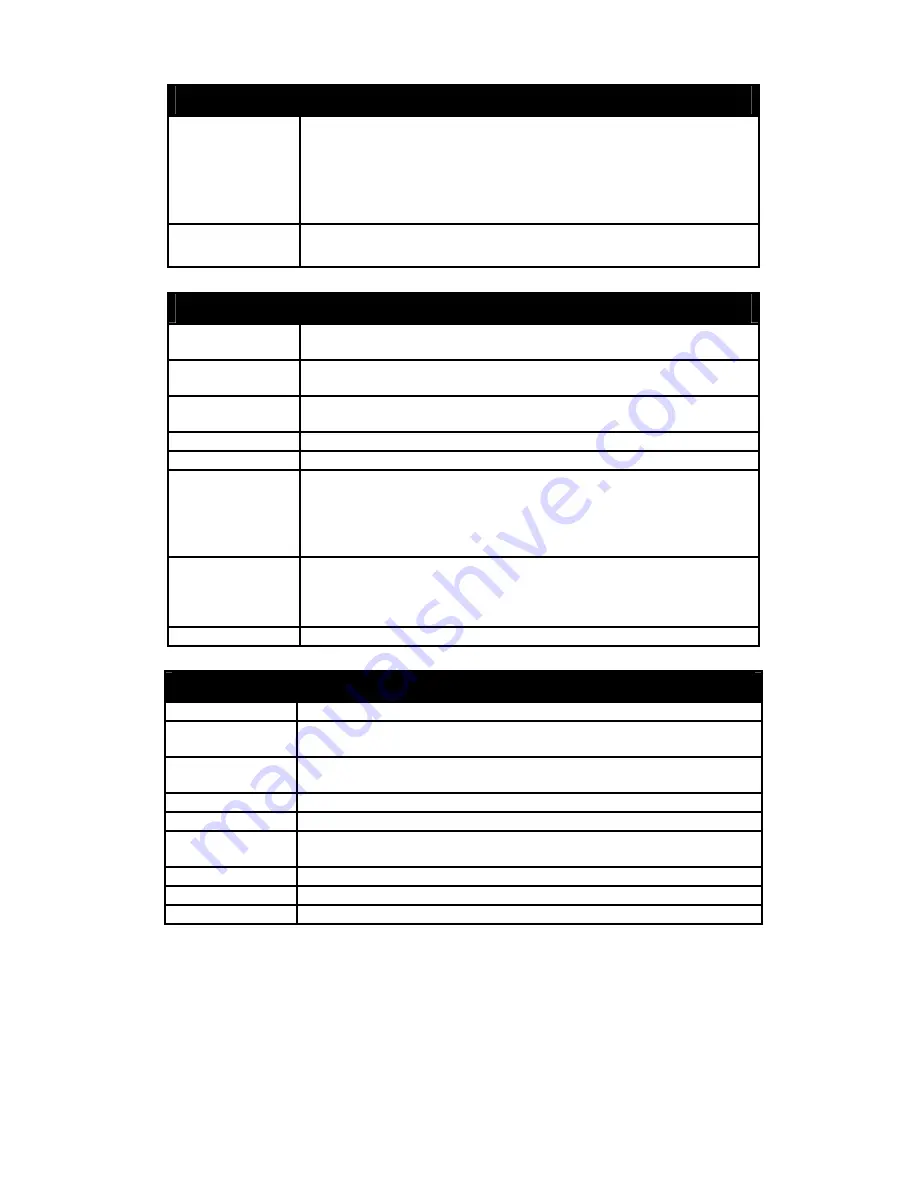
9
{braces}
Description
In the above syntax example, you have the option to specify
config
or
detail
. It is not necessary to specify either optional value, however the
effect of the system reset is dependent on which, if any, value is
specified. Therefore, with this example there are three possible
outcomes of performing a system reset. See the following chapter,
Basic Commands for more details about the reset command.
Example
command
reset config
Line Editing Key Usage
Delete
Deletes the character under the cursor and then shifts the remaining
characters in the line to the left.
Backspace
Deletes the character to the left of the cursor and shifts the remaining
characters in the line to the left.
Insert or Ctrl+R
Toggle on and off. When toggled on, inserts text and shifts previous
text to right.
Left Arrow
Moves the cursor to the left.
Right Arrow
Moves the cursor to the right.
Up Arrow
Repeat the previously entered command. Each time the up arrow is
pressed, the command previous to that displayed appears. This way it
is possible to review the command history for the current session. Use
the down arrow to progress sequentially forward through the command
history list.
Down Arrow
The down arrow will display the next command in the command history
entered in the current session. This displays each command
sequentially as it was entered. Use the up arrow to review previous
commands.
Tab
Shifts the cursor to the next field to the left.
Multiple Page Display Control Keys
Space Displays
the
next
page.
CTRL+c
Stops the display of remaining pages when multiple pages are to be
displayed.
ESC
Stops the display of remaining pages when multiple pages are to be
displayed.
n Displays
the
next
page.
p
Displays the previous page.
q
Stops the display of remaining pages when multiple pages are to be
displayed.
r
Refreshes the pages currently displayed.
a
Displays the remaining pages without pausing between pages.
Enter
Displays the next line or table entry.
















































